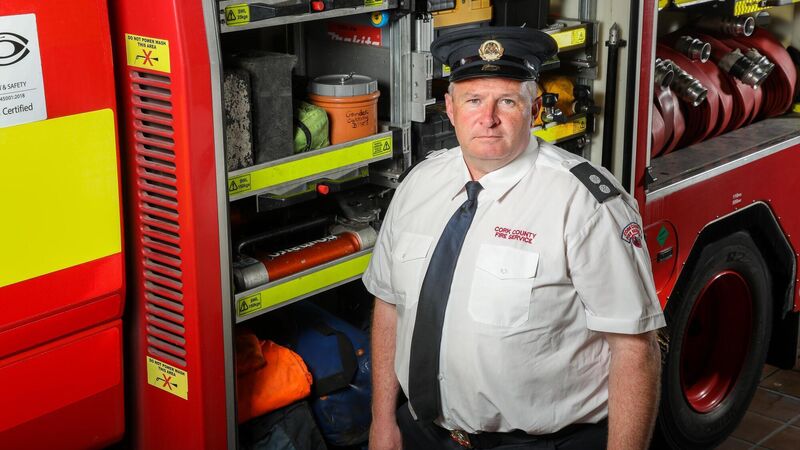'You can’t make a living from it': Retained firefighters to escalate industrial action

Jonathan Madden, Station Officer at Mallow Fire Station, Co Cork. Picture: David Creedon
When Jonathan Madden’s pager beeped on Sunday morning, he immediately left his breakfast and rushed to the fire station.
Minutes later, he was at a house fire where his crew broke down a door, entered a house through thick smoke and lashing flames, and rescued a man trapped inside, tending to him medically before the ambulance arrived.













